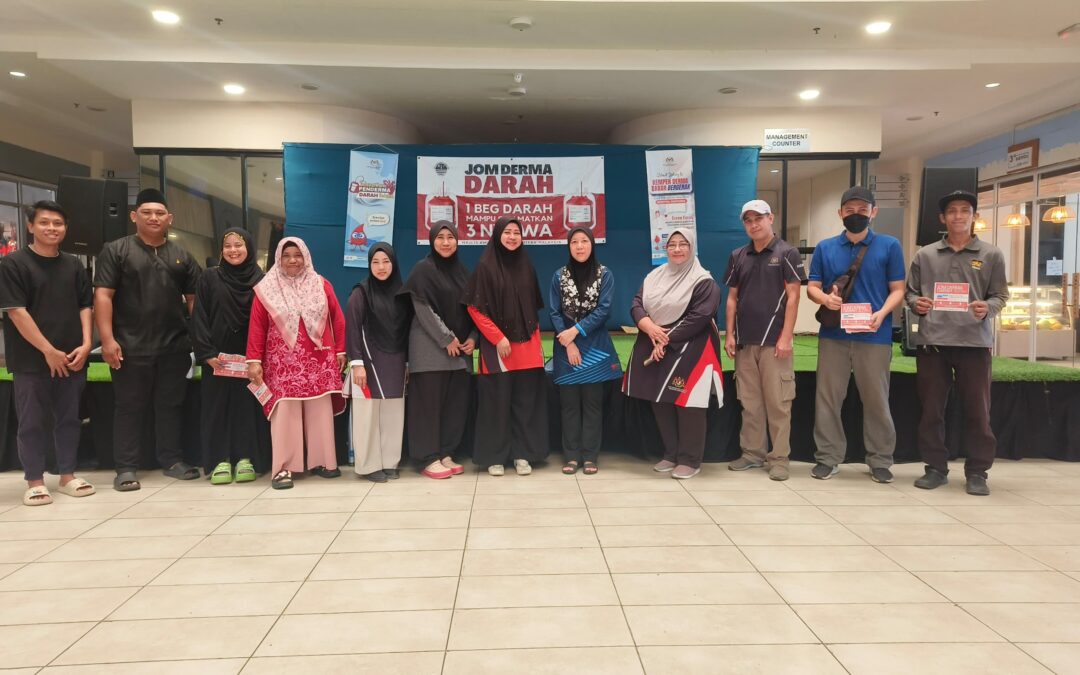As Malaysia moves steadily towards becoming an ageing nation, it is crucial to understand the implications of this demographic shift and how it affects various sectors — including healthcare and, more specifically, the national blood supply.
According to projections, Malaysia is expected to become an ageing nation by 2030, with 15% of its population aged 60 and above. This shift brings with it multiple healthcare challenges: a growing demand for medical services, increased need for blood transfusions due to chronic diseases, and a shrinking pool of eligible blood donors as the population ages. Blood donation, a simple yet life-saving act, is now more urgent than ever — and it is the younger generation that must rise to the occasion.
As people age, many become ineligible to donate blood due to health issues such as high blood pressure, diabetes, and other medical conditions. Thus, the burden of maintaining a sustainable blood supply falls increasingly on the shoulders of healthy young adults.
Unfortunately, blood donation rates in Malaysia still fall short of the ideal level. It is estimated that only 2.2% of Malaysians donate blood annually, whereas the World Health Organization recommends that at least 3–5% of a country’s population should donate regularly. Without a strong influx of new donors — particularly from younger age groups — the nation risks a severe shortage that could endanger lives, especially during emergencies or national crises.
It is not just about numbers. When youth step forward to donate blood, they set an example. They become role models in their communities, spreading awareness and cultivating a culture of compassion and public service.
Understanding the critical need for action, Persatuan Khuddam Malaysia, a national Muslim youth organisation, has taken proactive steps to encourage blood donation across the country. The association recognises that the solution is not just in urban centres, where hospitals and facilities are readily available, but also in reaching out to remote areas where healthcare support is limited.
One shining example of this commitment took place in Semporna, Sabah — a rural and underserved region in East Malaysia. In collaboration with Hospital Semporna, Persatuan Khuddam Malaysia organised a successful blood donation drive at Seafest Square Mall, bringing healthcare closer to the community. Despite the logistical challenges, the drive saw full participation with 17 blood donors registered and 17 pints successfully collected.
Some may view the number as modest. But behind the numbers lies a powerful story of dedication, outreach, and community service. It shows that when the youth are mobilised with purpose, even remote areas can become centres of life-saving action.
Moving forward, Persatuan Khuddam Malaysia aims to continue its outreach, both in cities and rural areas, to strengthen the nation’s blood supply. But this cannot be done in isolation. We need more young Malaysians — students, professionals, athletes, activists — to see themselves not just as individuals, but as agents of change.
Blood donation is not just a medical act; it is a social responsibility. It takes only 30 minutes, yet it can save up to three lives. More importantly, it shows solidarity with our fellow citizens — especially the vulnerable — and builds a stronger, healthier nation.
So let us step forward. Let us be the generation that doesn’t just talk about change but becomes the change. Whether you are in Kuala Lumpur, Johor Bahru, or Semporna, your contribution counts.
Let’s donate blood. Let’s lead by example. Let’s be the heartbeat of a caring Malaysia.
